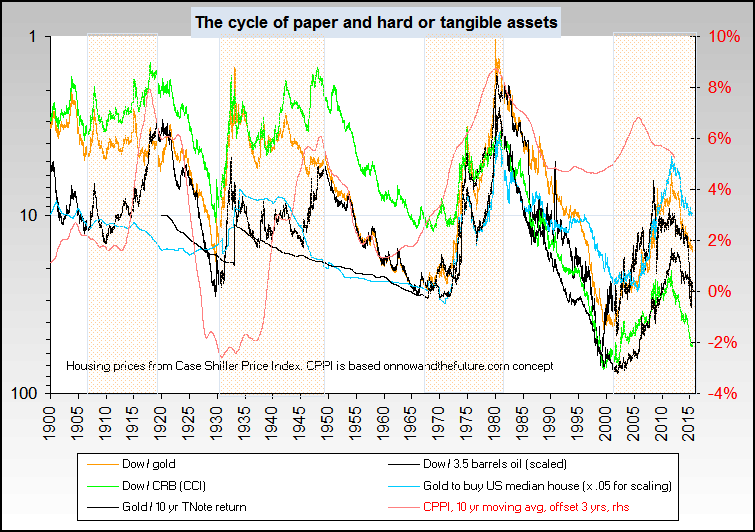Re: In the Shadow of 1937
This, IMO strengthens the the argument FOR stocks and equities, because the best way to stay ahead of inflation is to invest in the human capital of people who are out-producing inflation. With less tax hits, and less hassle of holding gold. Plus you can just buy gold-based equities, or other resource based equities. And while we want to look at the present, can you completely discount history? Stocks historically obliterate commodities. Plus, dividends, sweet, yummy dividends. And why not combine them all? Get a dividend-paying, commodity-based stock with above-average growth prospects, and you get the best of all worlds.
That, in any case, has been my own personal financial conclusion. Buy good commodity extracting and selling companies. (I still say oil is safer/better than gold, but that's my own preference. There has been enough evidence presented on itulip to convince me that gold is also excellent for investment.)
Originally posted by akrowne
That, in any case, has been my own personal financial conclusion. Buy good commodity extracting and selling companies. (I still say oil is safer/better than gold, but that's my own preference. There has been enough evidence presented on itulip to convince me that gold is also excellent for investment.)



Comment